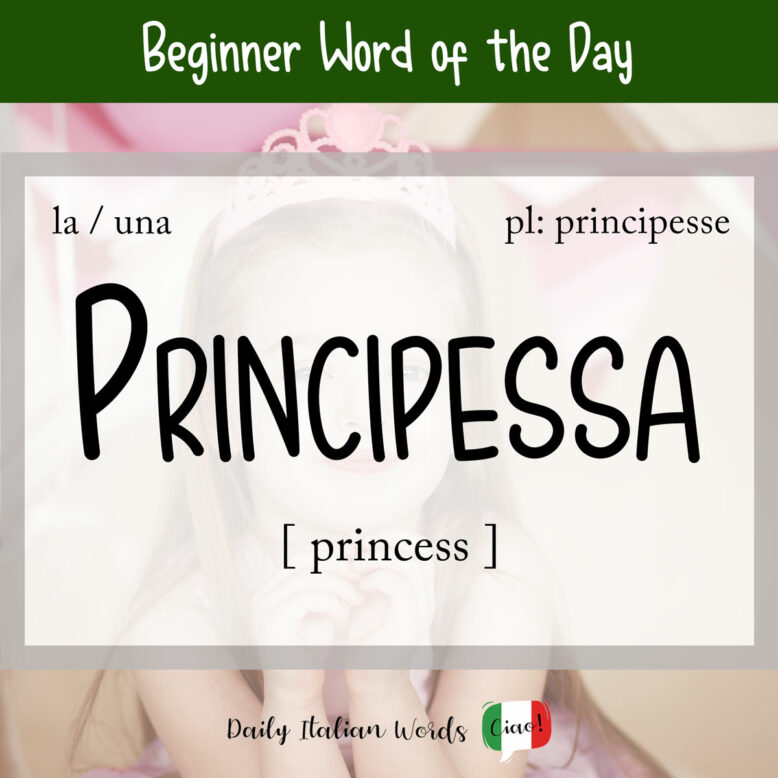The word for the daughter of a king or queen, or the wife or daughter of a prince, is principessa (feminine, plural: principesse) in Italian.

The last Crown Princess of Italy to become Queen of Italy was the famously beautiful and rebellious Marie José of Belgium, wife of King Umberto II. She reigned alongside her husband for a mere 27 days between May 9th 1946 and June 2nd 1946, after which the Italians voted for the abolishment of the monarchy in a referendum. Her short reign earned her the nickname La Regina di Maggio (The May Queen).
La principessa abita in un castello.
The princess lives in a castle.

Comparatively speaking, the word principessa may also be used to describe a wealthy woman who lives a life of luxury, or a woman who acts like a great lady despite not actually being one.
Quella ragazza crede di essere una principessa per come si comporta.
That girl believes she is a princess for the way she behaves.
Principessa is also a very common term of endearment used by fathers towards their daughters, or boyfriends towards their girlfriends.
Tu sei la mia principessa.
You are my princess.
The diminutive principessina is sometimes used to describe a very young princess.
Heather Broster is a graduate with honours in linguistics from the University of Western Ontario. She is an aspiring polyglot, proficient in English and Italian, as well as Japanese, Welsh, and French to varying degrees of fluency. Originally from Toronto, Heather has resided in various countries, notably Italy for a period of six years. Her primary focus lies in the fields of language acquisition, education, and bilingual instruction.


